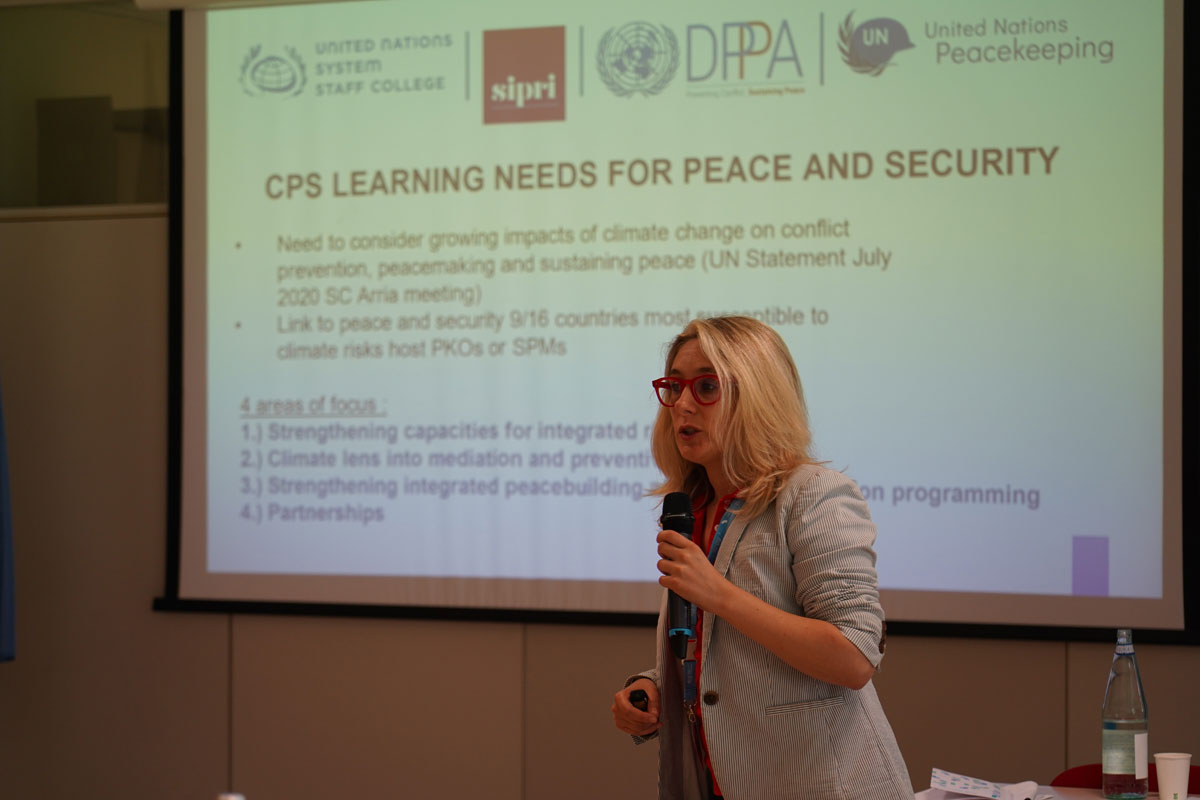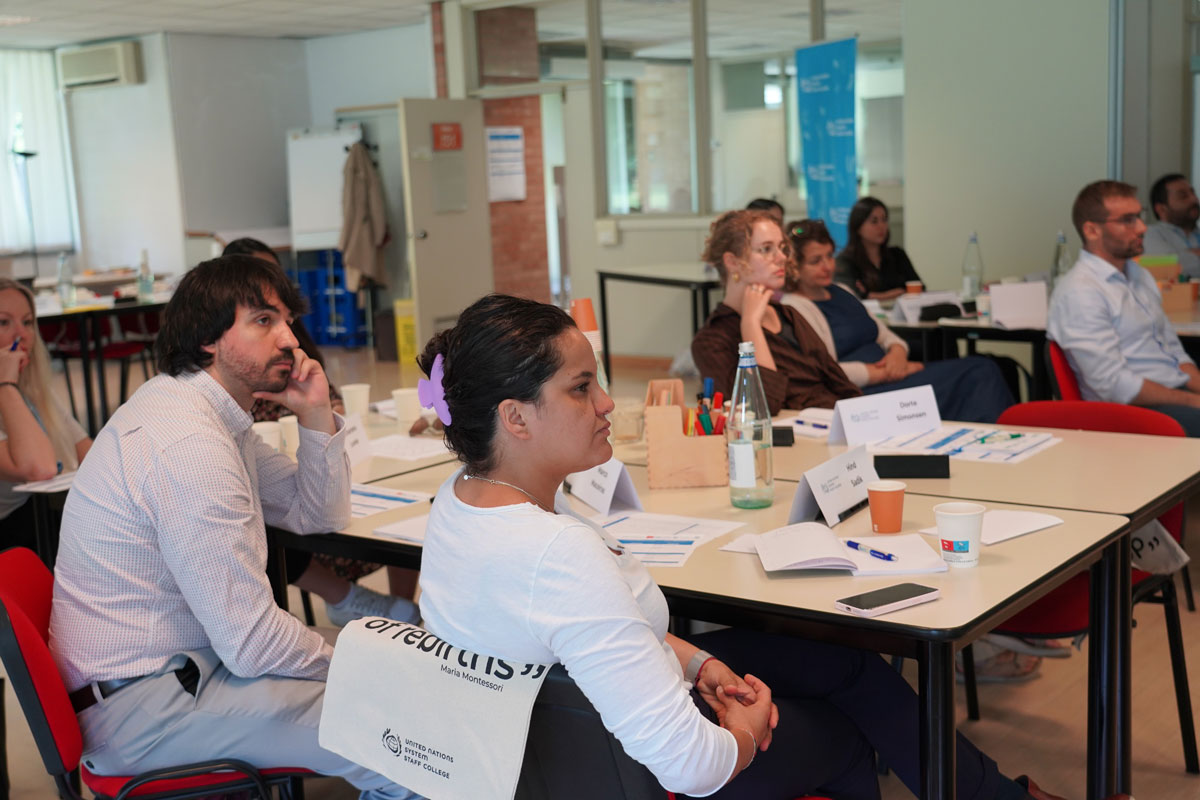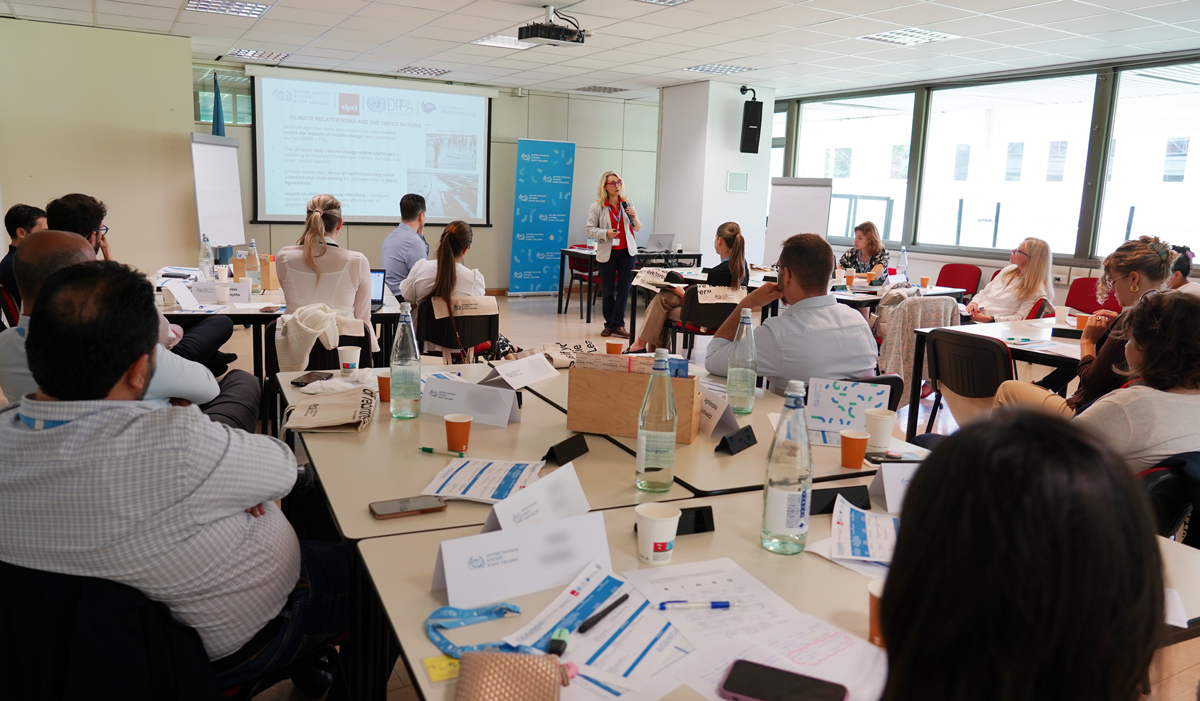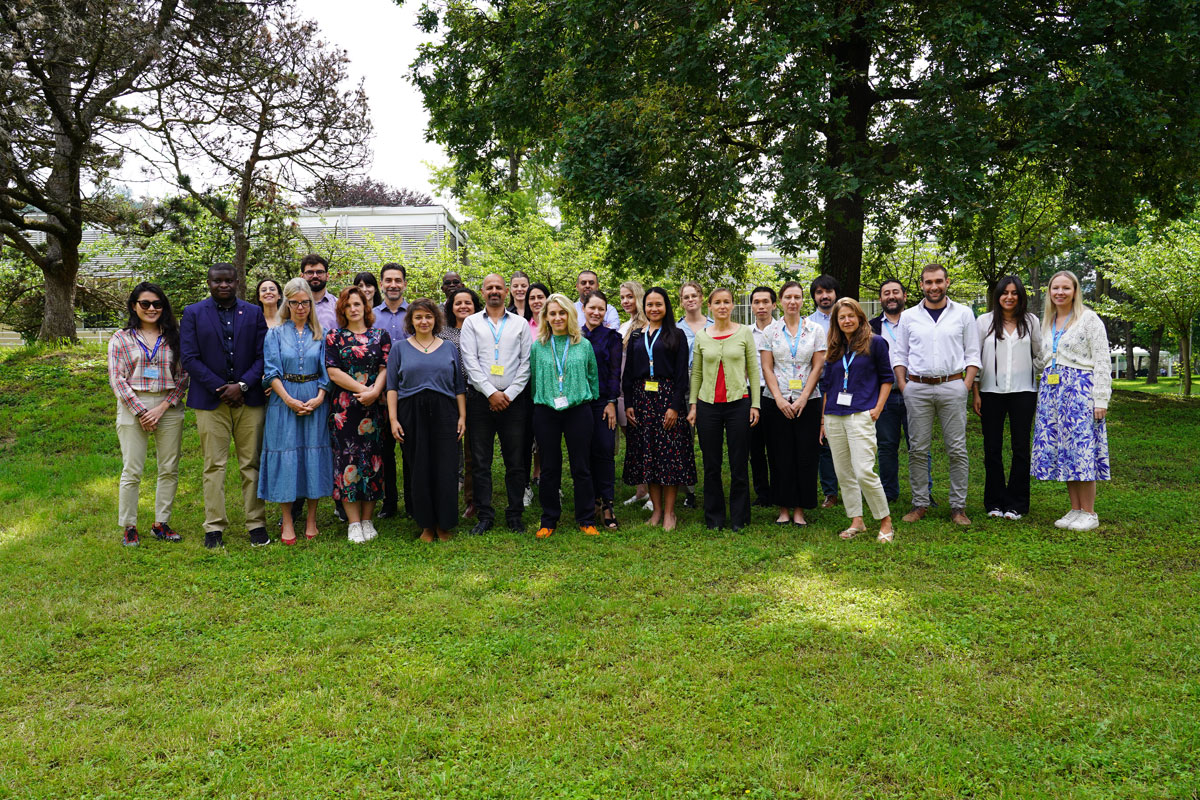

Climate change is recognized as one of the greatest risks to global peace and security.
In the Middle East and North Africa (MENA) region, the impacts of climate change, such as soaring temperatures, changing precipitation patterns, and more frequent extreme weather events, can contribute to increased political and social instability as they intersect with the region’s history of conflict, governance challenges, and pronounced vulnerabilities. Countries in the MENA region have faced deteriorating security and political environments over the past several years. Alongside other cross-border challenges, environmental degradation and extreme weather events — amplified by climate change — have increasingly challenged the ability of UN Special political and peacekeeping missions to carry out their mandates and hampered capacities of UN country teams to sustain peace through their work.
Climate, peace and security has been one of the fastest-growing areas of work within the UN in recent years, rapidly evolving from a need to better analyse the impact of climate-related risks for early warning and prevention to mainstreaming climate-sensitive considerations into peacebuilding programming. The concept of climate, peace and security poses the question of how to deliver peace and security in a world where threats are exacerbated by the impacts of climate change. Enhancing UN staff and personnel capacities to analyse the impact of climate related risks on UN missions mandates and conflict prevention work, as well as mainstreaming climate-sensitive considerations into peacebuilding programming, are paramount to address this. Hence, the UN Department of Peacebuilding and Political Affairs (DPPA) and the UN Department of Peacekeeping Operations (DPO), in partnership with the Stockholm International Peace Research Institute (SIPRI), the UN Institute for Training and Research (UNITAR) and the UN System Staff College (UNSSC), have developed a training programme on climate, peace and security.
The Climate, Peace and Security Training in the MENA Region gathered over 20 participants from peacekeeping operations, special political missions and Resident Coordinator Offices, bringing together staff from diverse backgrounds including political affairs officers, climate security advisors from the region, gender affairs officers, economic development and climate-change experts. This hybrid training consisted of two interactive online discussions and an in-person workshop held from 5-8 June, 2023, on the UN Campus in Turin, Italy. The training was generously funded by the Government of Ireland, whose representative recognized in her opening remarks this unique and timely opportunity for participants to share experiences with each other in view of enhancing collaboration and integration across the UN on climate, peace and security.


Through presentations, group exercises and a fictional case study, participants explored the different dimensions of climate-related security risks, possible pathways of climate insecurity, and entry points for UN integrated action in the MENA region. Key takeaways that emerged from the discussions include:
Climate-related security risks are highly context-specific – since there is no direct relationship between climate change and conflicts, it is important to analyse and understand the way in which climate change exacerbates existing vulnerabilities and compounds conflict triggers through its interaction with local, national and regional socio-economic, political and demographic factors. Integrated assessments are needed to better understand under which conditions risks can materialize, and develop tailored interventions to prevent, mitigate or manage those risks. The pathways of climate insecurity provide a useful framework to support analysis and understanding.
The short, medium and long-term implications of climate change should be considered when planning and programming for peacebuilding – proposed actions and solutions should be appropriate and adequately flexible to adapt to evolving conditions. Interventions should seek to strengthen capacities to cope with the impacts of climate change, which are generally low in conflict-affected contexts, and respect the principle of doing no harm, both of which are key for sustainable peace.
Climate, peace and security requires integrated approaches – involving actors and stakeholders from different fields is paramount to successfully prevent, mitigate or manage climate-related risks. The humanitarian-development-peace nexus provides an avenue for enhancing action on climate related security risks by developing holistic and sustainable solutions. The Climate Security Mechanism (CSM) created in 2018 also plays an important role in connecting actors across the UN and beyond and building synergies between country teams and missions to increase capacity, knowledge and action on those topics.
Climate finance flows to fragile and conflict affected countries should be increased – climate finance can provide a useful channel to ensure that conflict-affected countries have the means to build their adaptive capacity and resilience to climate shocks and stresses. While they often contribute the least to climate change, conflict-affected countries are highly exposed to its most severe consequences, having to carry the double burden of conflict and climate.
Climate-related issues can provide entry points for peacebuilding – in some contexts, bringing stakeholders together to engage in dialogue around environmental technical solutions and approaches can facilitate broader political discussions and ease tensions.

By the end of the training, participants had acquired new knowledge and tools to support mainstreaming of climate, peace and security issues in their work. They were ready and motivated to build and strengthen connections with partners and governments, design and implement projects and interventions informed by integrated climate security risk assessments, extend training opportunities to field staff, and pilot initiatives towards sustaining peace. This training constituted one more step toward building a strong network of climate, peace and security practitioners within the UN to deal with emerging challenges and provide assistance to those who are most vulnerable. Building on this and previous experiences, UNSSC is committed and looks forward to working with partners within and outside the UN to strengthen knowledge and exchanges on these topics.

Originally published on UNSSC.org